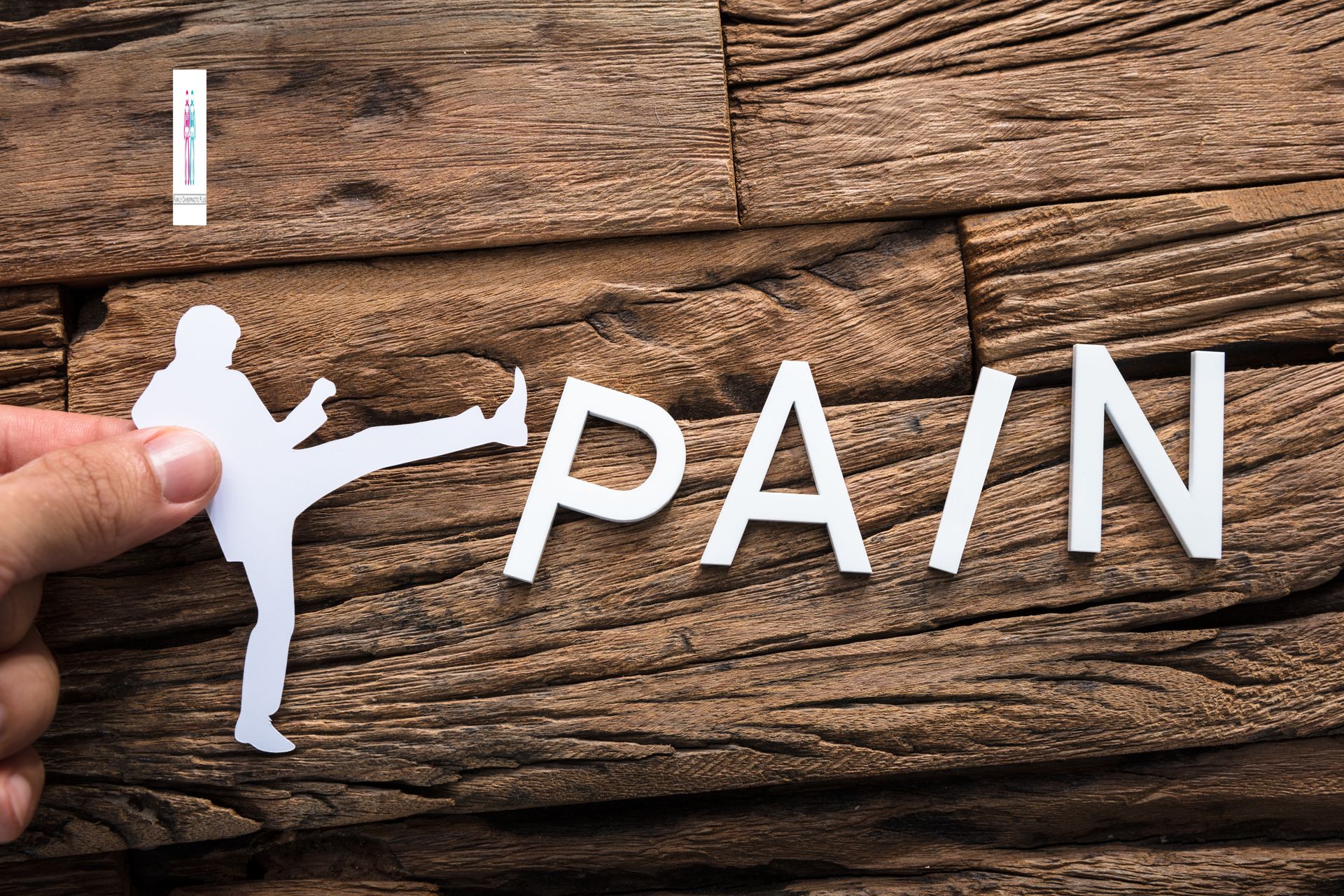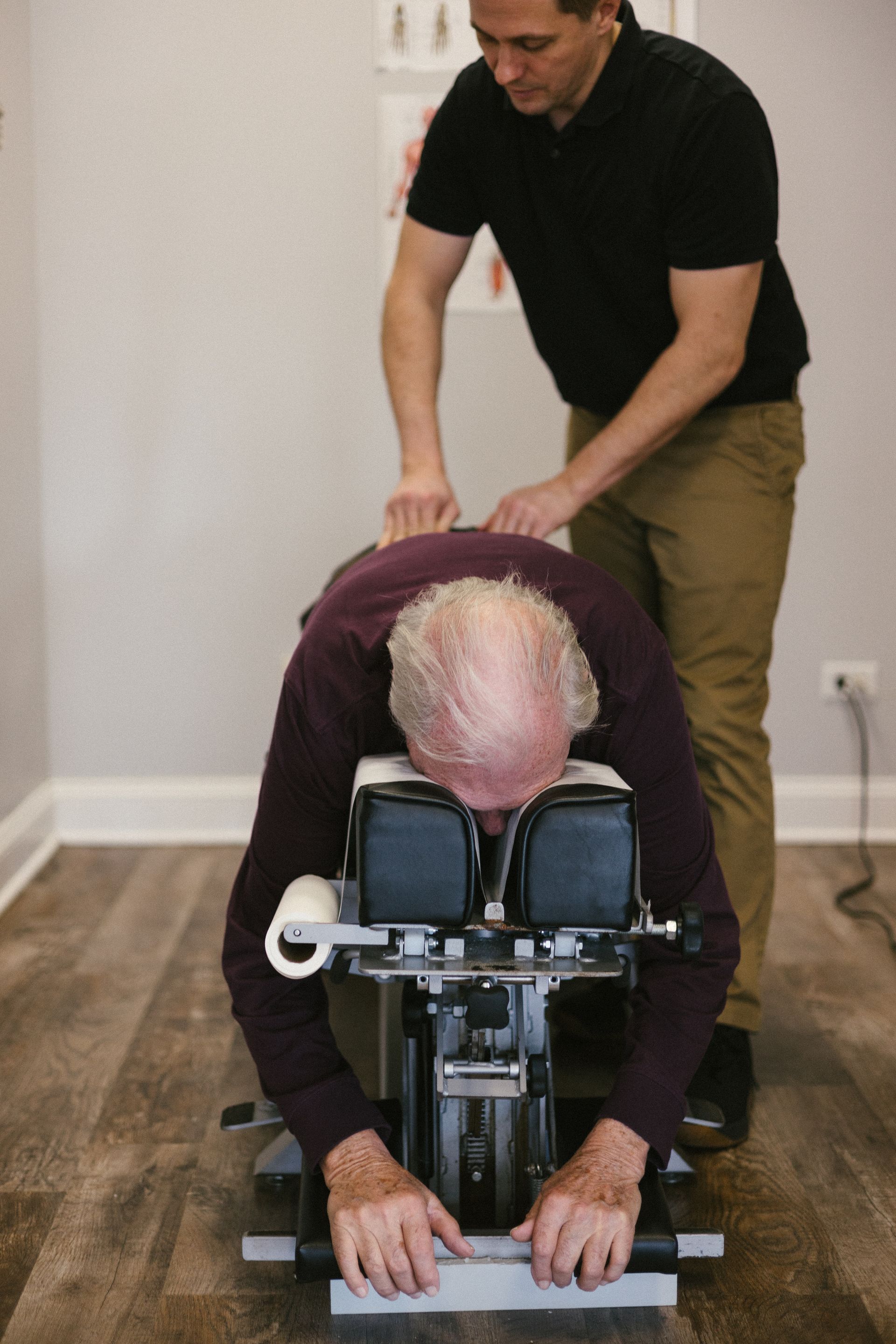Stress And Our Body
Louise Blankenship • February 6, 2020
Stress is a feeling of emotional or physical tension that causes your body to react to the challenge, feeling, or demand that generated it. In brief bursts, stress can be a positive thing, such as when it helps you avoid danger or meet a deadline.
Stress is, unfortunately, a normal part of life. Many things that happen to you, are around you, or that you do yourself can put stress on your body. Stress can do some strange things to your body as we will discuss below.
Stress And Our Body
- The Endocrine And Central Nervous System. The central nervous system (CNS) is what commands your “fight or flight” response. When triggered, the hypothalamus starts by telling your adrenal glands to release the stress hormones adrenaline and cortisol. These hormones increase your heart rate and send blood rushing to the areas that need it most in an emergency, such as your muscles, heart, and other important organs. When the perceived fear is gone, the hypothalamus then instructs all systems to return to normal. If the CNS fails to return to normal, or if the stressor doesn’t go away, then the response will continue.
- The Cardiovascular System. When there are frequent and prolonged episodes of stress, the body elevates blood sugar and blood pressure, both of which are well-known contributors to heart disease. It stands to reason that extended periods of constant stress can cause trouble. Not to mention, those who are often under stress may tend to use less than healthy coping mechanisms such as eating unhealthy food, drinking alcohol and smoking. These factors cause harm to the body in a myriad of ways, such as damage to the artery walls and subsequent plaque buildup. This buildup impedes blood flow and can even lead to complete blockages. As a result, the risk of major cardiovascular events such as heart attack and stroke are far higher than normal.
- The Digestive System. When we are stressed, our brain sends signals for chemicals such as adrenaline, serotonin as well as the stress hormone cortisol to be released. As a result, adverse reactions can occur. Stress can negatively affect our digestive system in a variety of ways. It can cause a decrease in blood and oxygen flow to the stomach, causing cramping, an imbalance in gut bacteria, as well as inflammation. These symptoms can further develop into gastrointestinal (GI) disorders such as irritable bowel syndrome (IBS), irritable bowel disease (IBD), peptic ulcers or gastroesophageal reflux disease (GERD).
- The Muscular System. When the body is under stress, muscle tension is a reflex reaction to stress as the body's way of guarding against injury and pain. With sudden onset stress, the muscles tense up and then release their tension when the stress passes. Chronic stress, however, causes the muscles in the body to be in a more or less constant state of guardedness. When the muscles are tight and tense for long periods of time, other reactions of the body can be triggered such as headaches, as well as flaring symptoms of arthritis, fibromyalgia and other conditions.
5 Natural Ways To Reduce Stress
- Learn To Be Mindful. Mindfulness is defined by maintaining a moment-by-moment awareness of our thoughts, feelings, bodily sensations, and surrounding environment without overreacting or being overwhelmed. Studies have shown that those who practice mindfulness manage their emotions better, have better physical health, fewer symptoms of pain, and less anxiety and depression. Mindfulness is something we all can learn. For a few moments every day, practice being completely present in whatever task you do. Give it your full attention and you’ll be likely to find stressful thoughts fall away.
- Determine What Is Most Stressful. Learning to manage stress means finding ways to cope when it most sabotages your well-being. Determine the specific times of day you might feel the most stress and develop strategies to make that time less hectic. This can mean being more prepared to make the activity at hand easier with preparation beforehand or writing lists to keep things organized.
- Exercise. One of the most effective natural stress releases is exercise. Exercising releases feel-good endorphins, it increases blood flow and helps you mentally become more resilient to stress and the other obstacles that daily life is full of. Schedule time each day to dedicate yourself to this simple way to reduce stress, it will pay off and help you sleep better!
- Stay Well Rested. Sleep is a very powerful stress reducer. Sticking to a regular sleep routine helps to calm the mind and restore the body. This will help regulate your mood, improve concentration, and sharpen judgment and decision-making. You are a better problem solver and are better able to cope with stress when you’re well-rested. Lack of sleep, on the other hand, can quickly reduce your energy as well as diminish mental clarity.
- Visit Your Chiropractor. Research has shown that chiropractic care is an ideal way to better learn stress management. Chiropractic care can but the body in alignment and keep all systems functioning properly as well as reduce muscle tension.
The Takeaway
Establishing a clear understanding of how stress impacts your physical and mental health is important. Learn the best ways to reduce stress for yourself and make it a priority.
Contact us
today! Family Chiropractic Plus
is dedicated to your overall health and well-being. Which is why we offer regular chiropractic adjustments in order to restore your body’s natural state of optimal health, while also providing it with the support it needs to heal from any injury, big or small.

We hear it all the time at Family Chiropractic Plus: "I don't need an adjustment; I just cracked my own back this morning!" It’s a tempting habit. When you feel stiff or sore, you might twist, bend, or push on your spine until you hear that familiar "pop," followed by a fleeting moment of relief. But while that release might feel good for a few minutes, self-adjusting is a far cry from professional chiropractic care—and in many cases, it’s actually making your condition worse. Here is why you should stop "self-cracking" and start seeking specific care. 1. It Lacks Specificity When you force your spine to pop, you aren't targeting the actual joint causing the trouble. Instead, you are moving multiple joints at once—usually the ones that were already moving just fine. Chiropractic adjustments are an art of precision. We use diagnostic tools, including digital X-rays , to identify the exact joint that is misaligned or restricted. We then apply a specific force to that area only. Without that level of precision, you’re just making "noise" without correcting the underlying issue. 2. You Are Creating Hypermobility (Instability) This is the most common danger of self-adjusting. When you force your joints to pop, you are often overstretching the ligaments around joints that are already mobile. Over time, these joints become hypermobile (too loose), while the "stuck" joints remain restricted. This imbalance puts massive stress on your spinal cord, muscles, and ligaments. Eventually, this instability can lead to chronic pain and even premature joint degeneration. 3. You Aren't Fixing the "Stuck" Joint The reason you feel the urge to crack your back again an hour later is because the problem joint — the one that is truly restricted — never actually moved. You’ve only manipulated the segments above and below it. It becomes a vicious cycle: you pop the wrong joints, feel a temporary endorphin rush but the original restriction remains. A professional chiropractor breaks that cycle by unlocking the specific joint that needs it. Once the true restriction is corrected that constant "urge" to crack usually disappears. 4. The Risk of Injury Your spine houses your central nervous system — it is delicate. Forcing your neck or back in the wrong direction can result in strained tendons, irritated nerves or even a rib displacement. Professional adjustments are controlled, safe and backed by years of clinical training. Leave It to the Pros in St. Pete Chiropractic care isn't about making noise; it’s about restoring function and allowing your body to heal. At Family Chiropractic Plus , we don't guess—we test. By using hands-on analysis and X-rays, we find the specific areas that need attention and adjust them safely. The next time you feel the urge to "crack" your own back, remember: the risks far outweigh the short-lived relief. Give your spine the professional care it deserves. Ready for a real adjustment? Contact Family Chiropractic Plus in St. Petersburg today to schedule your evaluation!

Do you ever feel like you’re walking through a mental haze? Maybe you find yourself staring at your computer screen at work, re-reading the same sentence or forgetting why you walked into a room. At Family Chiropractic Plus, we meet many St. Petersburg residents who struggle with "brain fog"—that frustrating combination of slow thinking, forgetfulness and a lack of concentration. While most people blame poor sleep or caffeine crashes, there is a physical source for mental clarity that many overlook: your spinal alignment. The Brain-Body Highway At our St. Petersburg clinic, we often describe the spine as more than just a support structure—it is the main highway for communication between your brain and every other part of your body. When your spine is properly aligned, nerve signals travel at lightning speed, which allows for sharp cognitive function. However, when misalignments (known as subluxations) occur, they act like traffic jams on the Howard Frankland Bridge—delaying essential messages and causing "static" in your nervous system. This interference doesn't just cause back pain; it can significantly dull your mental edge. What is Brain Fog, Really? While not a formal medical diagnosis, brain fog is a sign that your body is under stress. It can be triggered by: • Chronic inflammation • Spinal tension and "Tech Neck" • An overactive "fight or flight" response When your nervous system is out of balance, your brain is forced to spend extra energy just to maintain basic functions which leaves you feeling mentally exhausted before the day has even truly begun. How Chiropractic Adjustments Clear the Haze Our adjustments at Family Chiropractic Plus are designed to restore proper movement and alignment, effectively "clearing the tracks" for your nervous system. By removing pressure from the nerves, we help your brain send and receive signals with 100% efficiency. Many of our patients report a "lightbulb moment" following a series of adjustments, feeling more focused, emotionally lighter and mentally sharp. This isn't magic; it’s simply the result of your body operating exactly as it was designed to. Additional Brain-Boosting Benefits Beyond clearing the fog, regular care at our office can help: • Lower Stress & Anxiety: Calming the nervous system helps you stay "cool" during the St. Pete rush hour. • Improve Sleep Quality: Better alignment leads to deeper recovery cycles. • Boost Oxygen Flow: Better posture opens the chest and neck, ensuring your brain gets the oxygenated blood it needs to thrive. Unlock Your Best Version You weren't meant to just "survive" your day—you were meant to thrive. If you’re tired of feeling foggy and are ready to regain your focus, our team is here to help. Ready to clear the fog? Contact Family Chiropractic Plus in St. Petersburg today to schedule your evaluation and start your journey toward a clearer, more focused you!

Celebrating Deaf Awareness Month: A Commitment to Communication and Wellness September is Deaf Awareness Month, a time dedicated to celebrating the rich culture, language and contributions of the Deaf and Hard of Hearing community. Here at Family Chiropractic Plus, we see this as more than just an observance; it’s a powerful reminder that true health and wellness are built on a foundation of clear communication, understanding and inclusivity. Communication is the bridge that connects us. In healthcare, that bridge is essential. When communication is clear, accessible and respectful, patients feel seen, heard and empowered. For members of the Deaf community, navigating a world that primarily communicates through sound can present significant barriers, especially in a healthcare setting. We believe it is our responsibility to help break down those barriers. Our Commitment to the Deaf Community in St. Petersburg Our mission at Family Chiropractic Plus is to help you become the very best version of yourself, and that promise extends to every member of our community. We are committed to providing a welcoming, accessible and supportive environment for our Deaf and Hard of Hearing patients. We understand that effective communication is key to your care. Our team is dedicated to: • Ensuring We Understand You: We are prepared to utilize various communication methods, including writing, visual aids, and are happy to work with Video Remote Interpreting (VRI) services or a patient-provided ASL interpreter to ensure consultations are clear and comfortable. • Providing Patient-Centered Care: We take the time to listen, ensuring you are a full partner in your healthcare journey. Your comfort and understanding are our top priorities. • Creating a Safe Space: We are dedicated to fostering an environment of respect and patience, where every individual feels valued and understood. Wellness is for Every Body Just as your nervous system is the communication highway for your body, clear communication is the pathway to holistic wellness. Chiropractic care helps ensure your body's internal communication lines are functioning optimally. In the same spirit, we strive to ensure our communication with you is just as clear and effective. This Deaf Awareness Month, we celebrate the strength and vibrancy of the Deaf community. We also reaffirm our commitment to being a healthcare partner you can trust. Your journey to health starts with being understood. Contact our St. Petersburg clinic today to learn more or to schedule your appointment.

Here in St. Petersburg, we love our active lifestyle, from walking the pier to enjoying our beautiful beaches. But for the over 100 million Americans who experience chronic pain, daily life can be a significant challenge. According to a recent Institute of Medicine report, chronic pain affects more people than diabetes, heart disease, and cancer combined. Living with pain is debilitating. At Family Chiropractic Plus, we believe that understanding the underlying causes of pain is the first step toward finding effective relief. September is Pain Awareness Month; an initiative started in 2001 to educate the public about this widespread condition. In an effort to bring awareness to our community, we've gathered 10 essential facts about pain. 1. Pain is the #1 cause of disability in the United States. Pain causes more long-term disability than cancer and heart disease combined. The number of sufferers is staggering, with 100 million Americans living with chronic pain. 2. Your attitude can affect your pain. Research from Oregon Health and Science University found that individuals who have a proactive attitude and seek ways to cope with their pain tend to have better outcomes than those who focus on the pain itself. This is why a holistic approach that includes managing the mental and emotional aspects of pain is so important. 3. One in three people is personally affected by pain. More than 50 million Americans suffer from chronic pain each year, and another 25 million experience acute pain from an injury or surgery. It can affect anyone, but it is most common in adults aged 24 to 64. 4. Women may experience pain differently than men. A 2005 study found that women tend to report more pain throughout their lifetimes compared to men. However, women also tend to seek treatment more quickly and often recover faster. 5. Pain is incredibly costly. Pain costs our country an estimated $560-$635 billion annually in lost workdays, medical expenses, and other benefits. That's about $2,000 for every person living in the U.S. 6. Pain is a top reason for doctor visits. After the common cold, back pain is the number one reason people visit their family doctor. A survey by Research! America found that while most sufferers (63%) see their family doctor, 40% also make an appointment with a specialist, such as an orthopedist or chiropractor. 7. Pain significantly affects the workforce. The American Productivity Audit found that workers with a pain condition lose an average of 4.6 hours of productive time each week. An estimated $61.2 billion per year is lost, not from absenteeism, but from reduced performance at work. 8. Smoking can make pain worse. Studies show that smoking increases your risk of developing back pain and can intensify chronic pain for those with conditions like fibromyalgia. The pain is often reported as more intense in smokers than in nonsmokers. 9. Pain disrupts sleep. An estimated 20% of American adults report that pain disrupts their sleep a few nights a week or more. This creates a difficult cycle, as lack of sleep can interfere with mood, healing, and overall quality of life. 10. The weather can affect pain. You're not imagining it! Changes in barometric pressure, especially common here in Florida, can cause increased joint pain for some people, particularly those with arthritis. Find Relief at Family Chiropractic Plus There are many effective treatments available for both acute and chronic pain. This month, help create awareness by sharing this information and learning more about the advanced, non-invasive options that can help you or your loved ones find relief. If you are living with pain here in the St. Petersburg area, you don't have to suffer in silence. The team at Family Chiropractic Plus is here to help you find the root cause of your pain and create a personalized plan to help you reclaim your life. Contact us today to schedule your appointment.

While many people associate chiropractic care with back and neck pain, its benefits extend much further. One of the most common yet often overlooked conditions we help manage at Family Chiropractic Plus is arthritis. This condition, which causes joint pain, swelling, and stiffness, can significantly impact your quality of life, but you don't have to manage it alone. Understanding Arthritis Arthritis is a condition that affects joint health, and its symptoms typically worsen with age. If you're experiencing any of the following, you might be dealing with arthritis: • Pain and tenderness in your joints • Stiffness, especially in the morning • Swelling, inflammation, or redness • A feeling of weakness or buckling in the joint • Decreased range of motion You are not alone. Millions of Americans live with some form of arthritis, from osteoarthritis to rheumatoid arthritis. This condition can prevent you from enjoying your favorite hobbies, working comfortably, and living the active St. Petersburg lifestyle you love. Before turning to more medication, consider a less-invasive and highly effective treatment: chiropractic care. How Chiropractic Care Helps Arthritis At Family Chiropractic Plus, we look beyond just the symptoms to address the root cause of your joint pain. Studies show that chiropractic care is a safe and effective way to treat joint pain and reduce inflammation. Types of Arthritis We See • Osteoarthritis: The most common form, affecting the flexible cartilage of the joints. • Rheumatoid Arthritis: A chronic autoimmune disorder that targets the joints. Routine chiropractic care can benefit both forms of the condition. Our pain management strategies, combined with non-invasive treatments, can help you find relief without long-term reliance on painkillers. Our Methods of Chiropractic Treatment Every person’s experience with arthritis is unique. We develop a holistic treatment plan that addresses your specific pain points while improving your overall mobility and strength. Our techniques include: • Extremity Joint Mobilization: We gently work with the joints in your hands, wrists, feet, and knees to identify restricted areas and improve your mobility. • Chiropractic Adjustments: By correcting misalignments, we can reduce restrictions not just in the affected joints but throughout your body, which helps lower overall inflammation. We also offer other supportive treatments to enhance your care, such as massage therapy, heat/cold therapy, and personalized physical therapy exercises. Common Questions About Chiropractic Care for Arthritis Seeking treatment is the first step toward relief. Here are answers to some common questions we hear from our St. Petersburg patients. Is Chiropractic Care Safe for Arthritis? Yes. For osteoarthritis, chiropractic care is one of the safest treatment methods available. For inflammatory conditions like rheumatoid arthritis, we are still able to provide safe and effective care, though we may modify our techniques. We will never adjust a joint that has active, swollen inflammation. Instead, we can work on the surrounding tissues and muscles to relieve tightness and pain. Can a Chiropractor Help With Arthritis in the Lower Back? Absolutely . Spinal manipulation is one of our primary services. By gently realigning the spine, we can relieve pain and tension in the lower back. These adjustments also improve overall joint health, increase mobility, loosen tight muscles, and can even boost your energy and sense of well-being. How Often Will I Need to See a Chiropractor? Many patients feel significant relief after their first visit. However, consistent, regular visits are typically the most effective for managing pain and healing the body over time. The frequency of your visits will be tailored to your specific condition and goals, which we will discuss with you. Start Your Journey to Relief at Family Chiropractic Plus If arthritis pain is affecting your life, don't let it hold you back any longer. Chiropractic care at our St. Petersburg clinic won’t just help you manage your pain day-to-day—it can help improve your joint function and slow the progression of your arthritis over time. Contact Family Chiropractic Plus today to schedule your appointment and learn more about our arthritis treatment options.

When the intense summer heat gives way to the milder days of fall here in Florida, it's the perfect time to refocus on your health and flexibility. This seasonal shift often changes our routines—perhaps we're less active outdoors or spending more time sitting. This can lead to increased stiffness and discomfort. At Family Chiropractic Plus, we believe that staying flexible is essential for your overall wellness, and combining chiropractic care with targeted stretches can help you feel your best all season long. Why Does Flexibility Matter? Flexibility is more than just being able to touch your toes. It’s crucial for maintaining a healthy spine, reducing your risk of injury, and improving your mobility. As we get older, our muscles naturally become less elastic. Daily activities, like sitting at a desk for hours, can lead to significant tightness and pain. By incorporating chiropractic care and simple flexibility exercises into your routine, you can improve your range of motion and release tension throughout your body. Chiropractor-Approved Stretches to Try This Fall Here are five simple stretches you can do at home or at the office to keep your body flexible and aligned. 1. Cat-Cow Stretch This is an excellent stretch for improving spinal flexibility and loosening tight back muscles. • How to do it: Start on your hands and knees. As you inhale, arch your back and lift your head and tailbone (Cow Pose). As you exhale, round your spine and tuck your chin to your chest (Cat Pose). Flow between these two poses for 10 repetitions. 2. Seated Hamstring Stretch Our hamstrings can tighten up when we're less active. This stretch helps increase flexibility in the back of your legs and your lower back. • How to do it: Sit on the edge of a chair with one leg extended straight, heel on the floor. Keeping your back straight, lean forward from your hips with your chest out until you feel a gentle stretch. Hold for 20-30 seconds, then switch legs. 3. Neck Stretch It’s easy for neck muscles to become stiff. This simple stretch targets the neck and upper spine. While sitting or standing straight, slowly tilt your head, bringing your ear toward your shoulder. You can use your hand to apply gentle pressure to deepen the stretch. Hold for 15-20 seconds and then switch sides. 4. Child’s Pose This restorative pose is fantastic for relieving tension in the lower back and shoulders while promoting hip flexibility. • How to do it: Start on your hands and knees, then sit your hips back toward your heels and extend your arms forward. Rest your forehead on the floor and breathe deeply. Hold for 30-60 seconds. 5. Hip Flexor Stretch Tight hip flexors are a common issue, especially for those who sit frequently. This stretch helps release that tension. • How to do it: Get into a lunge position with one foot forward. Keeping your chest up, gently press your hips forward until you feel a stretch along the front of your back hip. Hold for 20-30 seconds, then switch legs. Chiropractic Care and Stretching: The Perfect Combination Chiropractic adjustments and stretching work together perfectly. Our adjustments at Family Chiropractic Plus help correct misalignments that cause stiffness, while regular stretching helps you maintain that alignment, improve flexibility, and prevent future injuries. Tips for Staying Flexible All Season Long • Stay Consistent: Make stretching a daily habit, even for just a few minutes. • Hydrate: Drinking enough water is crucial for muscle health, especially as the weather changes. • Keep Moving: Avoid sitting for long periods. Get up and take short walks or stretch breaks throughout the day. Visit Family Chiropractic Plus in St. Petersburg This Fall Our team is here to help you feel your best with chiropractic adjustments, personalized stretching routines and overall wellness support. If you’re feeling stiff or experiencing discomfort as we move into fall, schedule an appointment with us. Together, we’ll create a plan to keep you flexible and pain-free.

Auto accidents are a stressful and overwhelming reality on St. Petersburg roads. Even in a seemingly minor fender-bender, the immediate focus is often on visible damage, but the true impact on your body may not surface for days or even weeks. Ignoring these delayed symptoms can lead to chronic pain and long-term issues that affect your mobility and quality of life. At Family Chiropractic Plus, we specialize in uncovering and treating the hidden injuries from auto accidents to ensure your recovery is both thorough and effective. Here’s why it's crucial to pay attention to delayed symptoms and how our dedicated chiropractic care can help you heal correctly. Why Pain and Symptoms Are Often Delayed Immediately after a car accident, your body's natural "fight or flight" response kicks in, flooding your system with adrenaline and endorphins. These powerful hormones are natural painkillers that can mask the severity of an injury, making you feel fine when you're not. Once these hormones subside, the physical trauma from the crash begins to reveal itself. Common delayed symptoms to watch for include: • Neck or shoulder pain and stiffness, which are common signs of whiplash. • Persistent headaches or migraines. • Low back pain, ranging from a dull ache to sharp, shooting pain. • Numbness or tingling in your arms, hands, legs, or feet. • Unexpected fatigue, dizziness, or difficulty concentrating. These symptoms often indicate underlying issues like soft tissue damage, spinal misalignments, or nerve irritation that require professional evaluation. The Dangers of "Waiting It Out" Hoping that pain will simply go away on its own is a significant risk. Delaying proper treatment can allow acute injuries to become chronic conditions. • Untreated whiplash can lead to persistent neck pain, chronic headaches and degenerative changes in the spine. • Minor back injuries can worsen over time, causing ongoing discomfort and limiting your ability to enjoy daily activities. • Nerve irritation or damage can progress, leading to lasting numbness, weakness or radiating pain. Addressing these issues early is the key to preventing long-term complications and ensuring a faster, more complete recovery. How Chiropractic Care at Family Chiropractic Plus Can Help Our team offers a non-invasive and highly effective approach to treating auto accident injuries. We focus on identifying the root cause of your symptoms and developing a personalized treatment plan to help your body heal naturally. Your care plan may include : • Gentle Spinal Adjustments: To correct structural misalignments in the spine and joints caused by the accident's impact, relieving pressure on nerves. • Advanced Soft Tissue Therapy: To reduce inflammation, break down scar tissue, and promote healing in injured muscles, ligaments, and tendons. • Onsite Digital X-Rays: To provide a clear diagnosis, rule out serious complications, and allow us to create a highly specialized treatment plan tailored to your specific injuries. • Customized Rehabilitation Exercises: To restore your body's strength, improve mobility, and stabilize the injured areas to prevent re-injury. • Consistent Progress Monitoring: To track your healing journey and make any necessary adjustments to your care plan along the way. If you’ve been in a car accident in the St. Petersburg area, don't wait for pain to become a problem. Early intervention can save you from months or years of discomfort. 1. Get a professional evaluation as soon as possible, even if you feel fine. 2. Keep a simple log of any new or changing symptoms you experience. 3. Schedule a consultation with our team at Family Chiropractic Plus to get a clear diagnosis and a personalized recovery plan. Your Recovery Starts Here At Family Chiropractic Plus, we are here to guide your recovery and prevent long-term issues from disrupting your life. Delayed symptoms are your body's way of asking for help—and we're here to listen. Contact our St. Petersburg office today to schedule your consultation and start your path to feeling better. Your health is our priority.

Here in St. Petersburg, when people think of chiropractic care, they often focus on spinal adjustments and improved posture. While these are the cornerstones of what we do at Family Chiropractic Plus, we've seen firsthand how the benefits can be dramatically amplified when combined with massage therapy. The synergy between these two powerful treatments enhances healing, restores mobility, and supports your long-term wellness goals. Let’s explore how chiropractic care and massage therapy work hand in hand to help you feel your absolute best. The Perfect Partnership for Your Health Think of it this way: our chiropractic care focuses on the structure—your spinal alignment and nervous system function—ensuring your body's "wiring" is clear and efficient. Massage therapy, in turn, addresses the "soft wiring"—your muscles, tendons, and ligaments—by reducing tension, improving blood flow, and promoting deep relaxation. When we bring these therapies together, we create a comprehensive approach that supports your body's incredible ability to heal and thrive. Key Benefits of Integrating Massage with Your Chiropractic Care • Prepares Your Body for Better Adjustments: When your muscles are tense and tight, they can resist spinal adjustments. A massage beforehand helps relax these soft tissues, making your chiropractic adjustments smoother, more comfortable, and ultimately more effective and long-lasting. • Accelerates Healing and Reduces Inflammation: The improved circulation from massage therapy is crucial. It helps deliver a rich supply of oxygen and vital nutrients to your tissues while flushing out inflammatory byproducts, significantly speeding up your recovery process. • Increases Flexibility and Restores Range of Motion: If you're struggling with stiffness or restricted movement, this combination is for you. Massage works to release muscle knots and adhesions, while chiropractic adjustments restore proper joint mechanics. The result is a body that moves more freely and with less pain. • Provides Powerful Pain Relief: Whether you're dealing with a nagging injury, chronic back pain, or persistent headaches, combining these treatments can offer profound relief. Chiropractic adjustments address the root structural cause, while massage soothes the sore, spasming muscles that contribute to your discomfort. • Deepens Relaxation and Melts Away Stress: Your nervous system is central to your health. While our chiropractic care removes nerve interference, massage therapy helps calm your body's stress response, lowering stress hormones and creating an optimal state for healing and relaxation. Who in St. Petersburg Can Benefit from This Combined Approach? We find this integrated approach is especially helpful for: • Patients with chronic conditions like back pain, neck pain, sciatica, or frequent headaches. • Athletes aiming to recover from injuries faster or enhance their performance. • Individuals dealing with high-stress jobs or tension-related discomfort. • Anyone struggling with postural imbalances from sitting at a desk or from daily activities. Maximize Your Wellness at Family Chiropractic Plus If you’re already a patient with us or are considering chiropractic care, incorporating massage therapy can take your results to the next level. At Family Chiropractic Plus, we are committed to providing a comprehensive, holistic path to health for our St. Petersburg community. We will work with you to create a personalized care plan that integrates both therapies for the best possible outcome. Are you ready to experience the incredible benefits of combining massage and chiropractic care? Contact Family Chiropractic Plus in St. Petersburg today to schedule your appointment. Let's work together to get you on the path to better movement, lasting pain relief, and a healthier, more vibrant life!

As pet parents, we’d do anything to ensure our furry family members live their happiest, healthiest lives. We diligently schedule vet check-ups, provide nutritious food and offer endless belly rubs. But what if there was another gentle, effective tool to add to their wellness toolkit? What if subtle signs of discomfort—like hesitation on the stairs or less enthusiasm for fetch—could be addressed through a hands-on approach that supports their body's natural healing ability? Enter the world of animal chiropractic care, a holistic therapy focused on restoring mobility, alleviating pain and boosting your pet's overall quality of life. What is Animal Chiropractic Care? Just like in humans, your pet's nervous system controls everything in their body. It's the master communication network, sending signals from the brain, down the spinal cord and out to every organ and muscle. The spine acts as the protective armor for this vital highway. When vertebrae in the spine become slightly misaligned or restricted in their movement—a condition known as a subluxation—it can interfere with the flow of information along those nerves. This can lead to pain, stiffness, muscle tension, and even affect organ function. Animal chiropractic care involves a certified Doctor using their hands to apply a gentle, specific, and quick thrust to a joint to restore its normal motion. The goal is simple: to remove the interference in the nervous system, allowing the body to function and heal as it was designed to. The Tail-Wagging Benefits of an Adjustment So, what kind of positive changes might you see after your dog or cat visits a chiropractor? The benefits are surprisingly wide-ranging. 1. Improved Mobility and Pain Relief This is one of the most common reasons pet owners seek chiropractic care. Adjustments can provide significant relief for animals suffering from: • Arthritis • Hip dysplasia • Joint stiffness and general "slowing down" • Neck or back pain • Recovery from injuries or surgery By restoring proper joint mechanics, chiropractic care can reduce inflammation and pain, helping your senior dog navigate the house with ease again or encouraging your cat to leap onto their favorite perch without hesitation. 2. Enhanced Nervous System Function Since the nervous system governs everything, a well-aligned spine supports whole-body health. Proper nerve flow can improve biomechanics and coordination, which is crucial for active and athletic dogs. It can also have a positive impact on issues that might not seem related to the spine, such as certain types of incontinence or digestive problems, by ensuring the organs are getting the right signals from the brain. 3. Support for Senior Pets The golden years can be tough on a pet's body. Chiropractic care is a wonderful, non-invasive way to manage chronic pain and maintain a high quality of life for senior animals. Regular adjustments can keep them more comfortable, mobile and engaged in family life for longer. 4. Proactive Wellness and Performance You don’t have to wait for a problem to arise. For canine athletes involved in sports like agility, flyball or dock diving, regular chiropractic check-ups can help prevent injuries, improve flexibility and ensure they are performing at their peak. Think of it as essential maintenance for your high-performance companion. Signs Your Pet Might Benefit from a Visit Our pets can't tell us when they're sore. Instead, they show us through subtle changes in their behavior and movement. Keep an eye out for these signs: • Difficulty getting up from a lying position • Hesitation to jump on furniture, into the car, or go up/down stairs • Changes in posture (e.g., a roached back or sitting on one side) • Yelping or sensitivity when being touched or lifted • Limping or an unusual gait • A decline in performance or a lack of enthusiasm for play • Licking or chewing at a specific area of their body repeatedly What to Expect A visit to an animal chiropractor is a calm and gentle experience. The practitioner will start by taking a detailed history of your pet's health and lifestyle. They will then perform a thorough examination, observing your pet's gait and posture and using their hands to feel the spine and joints for areas of restriction. The adjustment itself is very quick and precise. Most animals don't even seem to notice it, and many find the process relaxing. Owners are often surprised at how gentle it is. If you've noticed your four-legged friend slowing down or showing signs of discomfort, it might be time to look beyond conventional treatments. Animal chiropractic care offers a safe, effective and holistic path to restoring movement, relieving pain and unleashing your pet's inner puppy or kitten once again. Call Family Chiropractic Plus to find out if a consultation could be the right next step for your beloved companion.

For many, a visit to the chiropractor is a reactive decision. A sudden twinge in the lower back after lifting a heavy box, a persistent crick in the neck from a long week at the desk, or headaches that just won't quit. We often wait for pain to become the primary motivator for seeking care. But what if we shifted our perspective? What if, instead of just treating problems as they arise, we could actively prevent them from happening in the first place? This is the central idea behind a growing movement in healthcare: proactive wellness. And within this model, chiropractic care is emerging as a powerful cornerstone strategy for maintaining long-term health, not just alleviating immediate pain. It's about moving from a "pain-based" model to a "wellness-based" one, where the goal is to keep you functioning at your absolute best, day in and day out. Redefining the Role of Your Chiropractor The common perception of chiropractic care often revolves around the signature "adjustment" or "manipulation " that provides relief. While these spinal manipulations are a key technique, their purpose runs much deeper than a temporary fix. Your spine is the central highway for your nervous system, which controls and coordinates every single function in your body—from muscle movement to organ function. When vertebrae in the spine are misaligned (a condition known as a subluxation), they can interfere with this critical nerve communication. A proactive approach to chiropractic care focuses on identifying and correcting these minor misalignments before they lead to pain, dysfunction, or injury. Think of it like a dental check-up or routine car maintenance; you go regularly to prevent cavities and engine failure, not just when you have a toothache or your car breaks down. The Pillars of Preventative Chiropractic Care Leveraging chiropractic as a preventative tool can have a profound impact on your quality of life. Here are the keyways regular care helps you stay ahead of health issues: 1. Improving Posture and Combating "Tech Neck" In our modern world, we spend hours hunched over computers, craning our necks to look at smartphones, and slumping on couches. This chronic poor posture puts immense strain on the muscles and ligaments of the neck and spine, leading to the ubiquitous "tech neck," tension headaches, and upper back pain. Regular chiropractic adjustments help counteract these forces, realigning the spine and retraining your body to maintain better posture naturally. This reduces daily wear and tear, leaving you with more energy and less chronic discomfort. 2. Enhancing Athletic Performance Athletes at all levels, from weekend warriors to professionals, are increasingly turning to chiropractic care to gain a competitive edge. Optimal performance relies on flawless biomechanics. A properly aligned spine ensures that the nervous system is firing messages to muscles with maximum efficiency. This can lead to improved flexibility, greater power, a better range of motion, and enhanced balance and coordination. 3. Reducing the Risk of Injury Many injuries are not the result of a single event, but rather the culmination of minor, unaddressed imbalances. A slight misalignment in the pelvis can alter your gait, putting undue stress on a knee or ankle. A stiff mid-back can force the lower back and neck to overcompensate, making them vulnerable to sprains and strains. Proactive chiropractic care is like performing a regular systems check on your body's framework. By correcting these underlying imbalances, you create a more stable and resilient structure that is far less susceptible to injury during sports, work, or daily activities. Your Proactive Toolkit: Ergonomics for the Modern Workforce Your chiropractor is your partner in wellness, but a truly proactive approach includes how you manage your body between visits. Here are some essential ergonomic tips: • Optimize Your Desk: Position your monitor so the top of the screen is at or slightly below eye level. Your chair should allow your feet to rest flat on the floor with your knees at a 90-degree angle. Keep your keyboard and mouse close to avoid over-reaching. • Stand Up Straight: If you use a standing desk, ensure it's at a height where your elbows are bent at 90 degrees. Wear supportive shoes and consider an anti-fatigue mat. • Mind Your Mobile: Instead of looking down at your phone, consciously lift it closer to eye level. • Commute Comfortably: Adjust your car seat to support your lower back's natural curve and ensure you aren't straining to reach the pedals or steering wheel. Lifestyle Tips for a Resilient Spine Beyond the office, simple daily habits can make all the difference: • Move Every 30: Set a reminder to get up, stretch, and walk around for a few minutes every half hour. • Hydrate for Your Discs: The gelatinous discs between your vertebrae are mostly water. Staying well-hydrated keeps them healthy and pliable. • Sleep Smart: Sleep on your back or side, not your stomach. Use a supportive pillow that keeps your head in a neutral position with your spine. • Lift with Your Legs: When lifting anything, bend at your knees and hips, keeping your back straight and engaging your core muscles. Take the Driver's Seat of Your Wellness Becoming a proactive patient means seeing your health as your greatest asset. It's an investment in a future with more mobility, less pain, and a higher capacity to enjoy the activities you love. Chiropractic care is not just a solution for back pain; it is a vital tool for building and maintaining a foundation of optimal wellness. If you're ready to shift from simply reacting to pain to proactively building a healthier life, consider consulting with a chiropractor. A conversation about your health goals can be the first step toward creating a personalized, preventative care plan that will serve you for years to come. We're here to support you every step of the way. Follow the link to make an appointment today https://www.familychiroplus.com/start or call and chat to our friendly staff.



